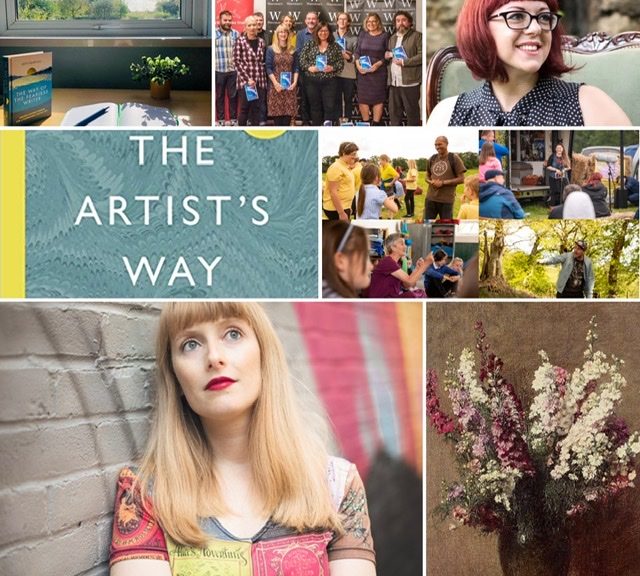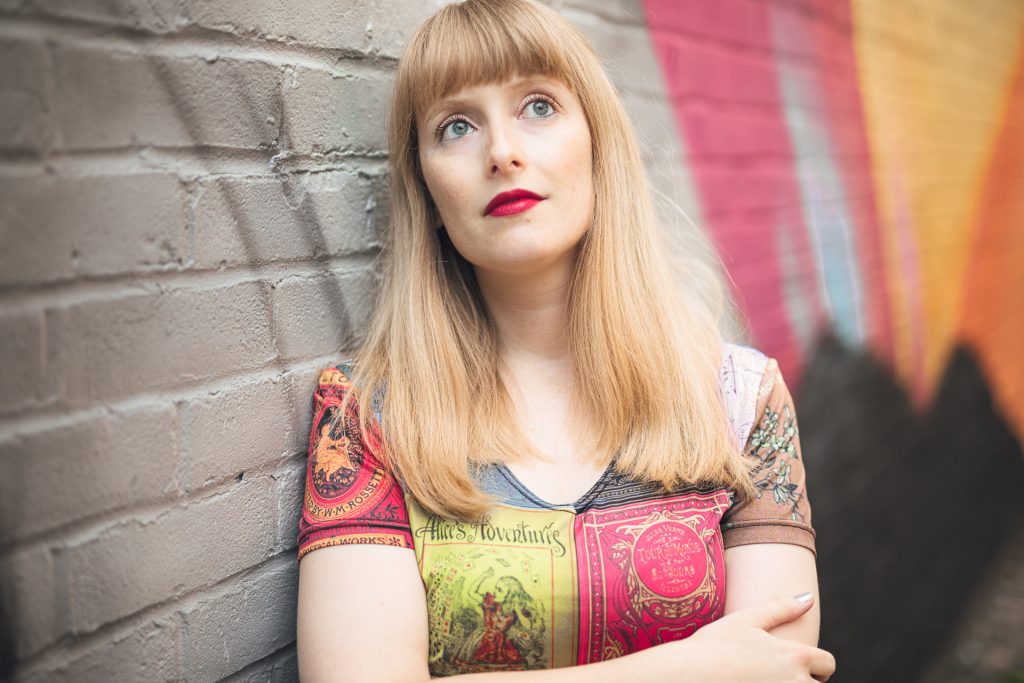
In our latest Writer interview Director of Get The Chance, Guy O’Donnell chats to Bethan James. They discuss her development as a writer, her career to date, being shortlisted for the Rhys Davies Short Story Award and a future free workshop ‘Storytelling for Beginners: Retelling Welsh Myths for a Greener Future’
Hi Bethan, you and I have known each other for some time as you were one of the original Young Critics supported by Get The Chance, since then you creative career has blossomed, can you give our readers some background information on yourself please?
I grew up in South Wales, and getting involved in The Young Critics scheme nearly a decade ago ignited my creative industries career journey. This enabled me to see world-class productions like Belarus Free Theatre at the Sherman for free, and get my work published in stellar places like Wales Arts Review. That experience launched me into freelance work at National Theatre Wales, then a Marketing & PR role at Oxford Playhouse theatre.
My love of writing led to a comms job at a Welsh publisher, then a career as a Senior Book Publicity Manager in London, but the written word has always been my calling. This month, I was shortlisted for the Rhys Davies Trust Short Story Award. I moved back to Wales recently, and I’ve just submitted my debut historical mystery novel to my literary agent. Fingers crossed for a tidy book deal!
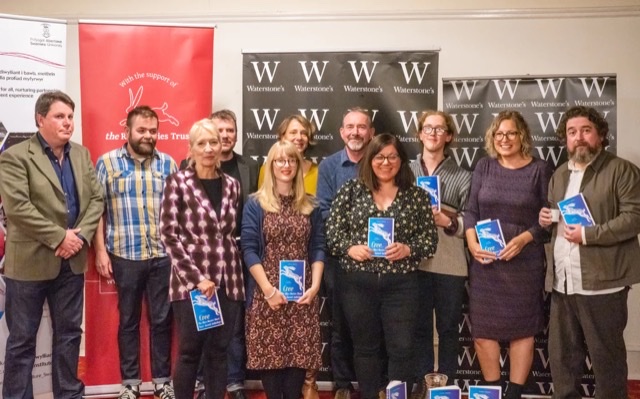
Fast forward to October 2022, and I’m halfway through an Arts Council Wales ‘Create’ grant for a storytelling project. My project includes time to write, mentoring with amazing storyteller of over 25 years Fiona Collins, and training at Ty Newydd Writers’ Centre.
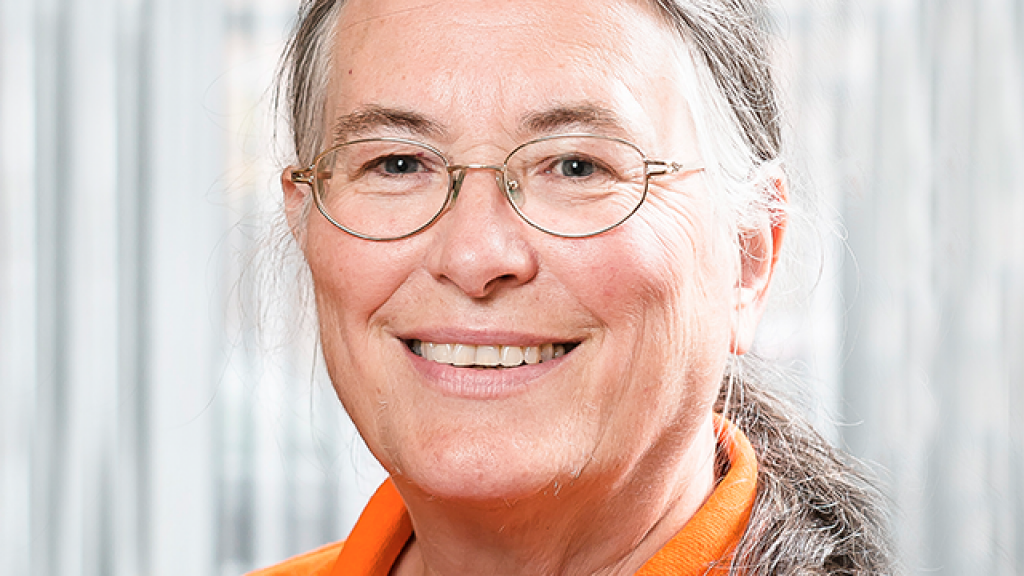
A dream come true. It culminates in delivering accessible and free virtual storytelling workshops on theme of climate change and Welsh myths. More on this later in the Q&A, and I hope your readers can join us for a free workshop on the 1st November.
So, what got you interested in the arts?
I remember when I was about 7 years old, the National Museum of Wales did a competition for children to choose a painting in their collection and write a piece of art criticism about it. Larkspurs by Henri Fantin-Latour drew me to it – a still life with a vase of flowers.
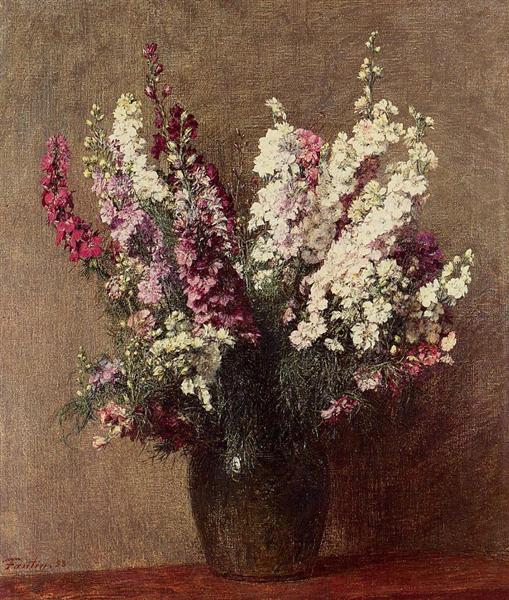
My review was basic. A few lines about pretty pastel colours and how it made me happy. But it got published in the competition booklet. That made me feel listened to, and I realised that I had a voice in the artworld despite being a child.
I’m also lucky that my parents read me bedtime stories and took me to the library every week. That seeded my love of storytelling for life. I was about 18 years old before I visited a bookshop for the first time and bought a book, which people in the publishing industry find odd!
The other gamechanger was a scheme called ‘A Night Less Ordinary’ when I was a university student at Southampton University, a world away from the little Welsh village I grew up in. That enabled me to see a play every week for free. My passion for theatre was cemented. Prior to that, I’d only really been exposed to panto (which I love by the way, but I appreciated my eyes being opened to new and classic works).
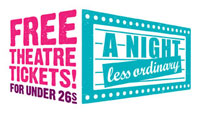
Can you tell us about your writing process? Where do your ideas come from?
Great question. One of the best – and strangest – tips I’ve ever had for getting ideas when you’re stuck is to find water, because water makes you feel inspired. Wash dishes, brush teeth, have a shower, or walk by a river, and ideas will probably flow!
On a more practical level, I recommend the book The Artists’ Way by Julia Cameron to everyone. It takes you on a 10 week journey of creative discovery and inspiration. Some aspects are a bit spiritual for me, but her advice such as doing a few minutes freewriting to start your day – a subconscious brain dump where you don’t edit yourself – is invaluable.
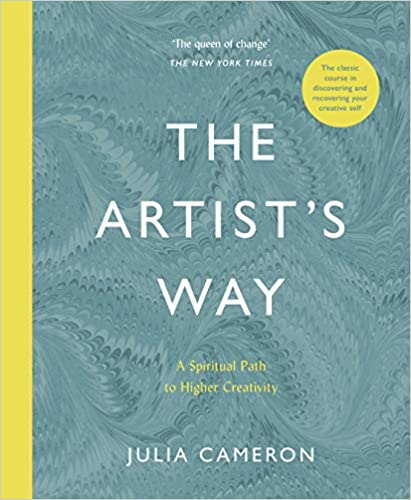
The way stories often appear to me is as lines of dialogue popping into my head at random moments. I start writing to try and work who’s saying those lines? Where are they? What happening? It’s like getting a line of script, and then you’re a director and the TV episode or film starts taking shape. Eventually, I can sit back and the scene plays out in my mind’s eye.
I just have to type quickly enough to catch everything I can see before me, and what’s being said.
Always carry a notebook with you to jot down the quirky things you overhear, or sights that catch your eye, or strange encounters. Keep it by your bedside too for scrawling down your dreams after you wake. You’ll never remember afterwards otherwise!
Things like ‘story cubes’ dice with pictures can help writer’s block, or using Tarot cards as visual prompts.
The other top tip is to read a lot in the genre you’re writing in. You’d be surprised how many writers I know say they’re too busy writing to read, but how can you fill up that well of ideas otherwise? For example, writing my Victorian crime novel, I binged on Sherlock Holmes stories to immerse myself in the atmosphere, voice, details of the era.
I love this quote from Sylvia Plath: ‘everything in life is writable about if you have the outgoing guts to do it, and the imagination to improvise. The worst enemy to creativity is self-doubt.’
Can you describe your writing day? Do you have a process or a minimum word count?
I’m definitely not a ‘get up at 6am with the sunrise’ writer! Because of my thyroid disorders, I get brain fog first thing. On a day I’ve carved out for writing, I take my time to get going. I’ll clear my email inbox, check social media, and have a some porridge, do a little walk outside, and try to be at my desk by 9.30am. Earl Grey tea fuels me.
Throughout the day, I write in 25-minute sprints followed by 5 minute breaks (known as the Pomodoro method). The game-changer for me was discovering a free productivity app called Forest. For every stint of focused work, you can plant a beautiful virtual tree. Once you’ve planted enough, the app plants a real-life tree for you to help the environment. Rewarding myself for sitting down at that blank page works for me.
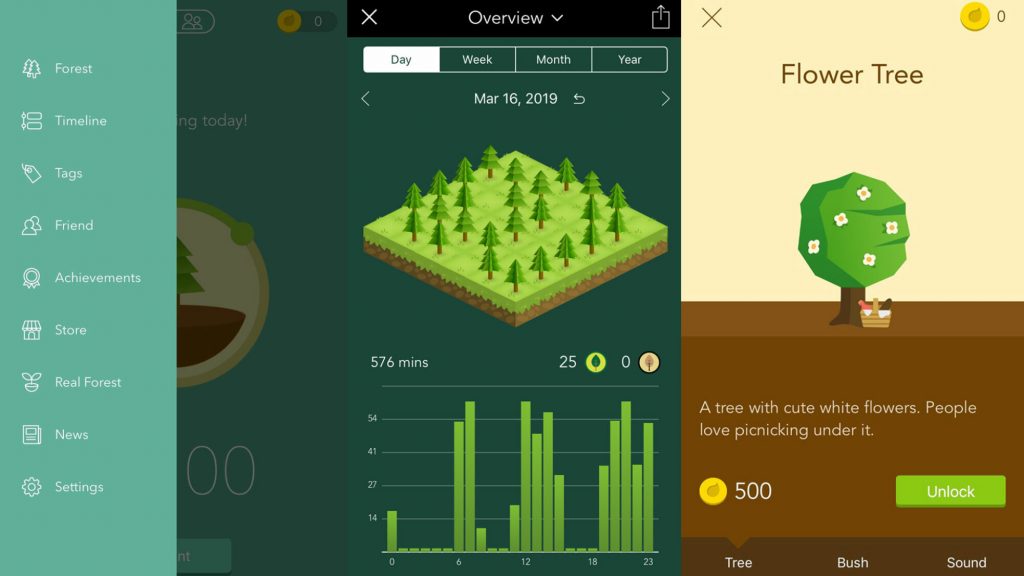
Unusually, I have a “no wordcount” rule on my writing days. I never track or count words on a project – only time. But the reason is, writer’s often get demoralised by not hitting a wordcount target, whereas maybe that 8-hour wordless day was the most important one all month, because they sat back, stared out the window, and solved a huge plot hole. Mindset over wordcount any day: one you carry across projects, the other ends when the story does.
I’ll have another little walk at lunchtime, then work intensively until late. I’m a night owl so my best time to write is evening from 8pm to midnight. I enter the state between wake and sleep and the ideas flow.
I end the day filling in my bullet journal – a tip from author VE Schwab. You think of things you want to do that month: maybe yoga, novel writing, and cutting down on caffeine. Then you colour in a journal square for each day you achieved it. Whether you did 1 hour of writing or 10, you colour it in and feel a sense of achievement.
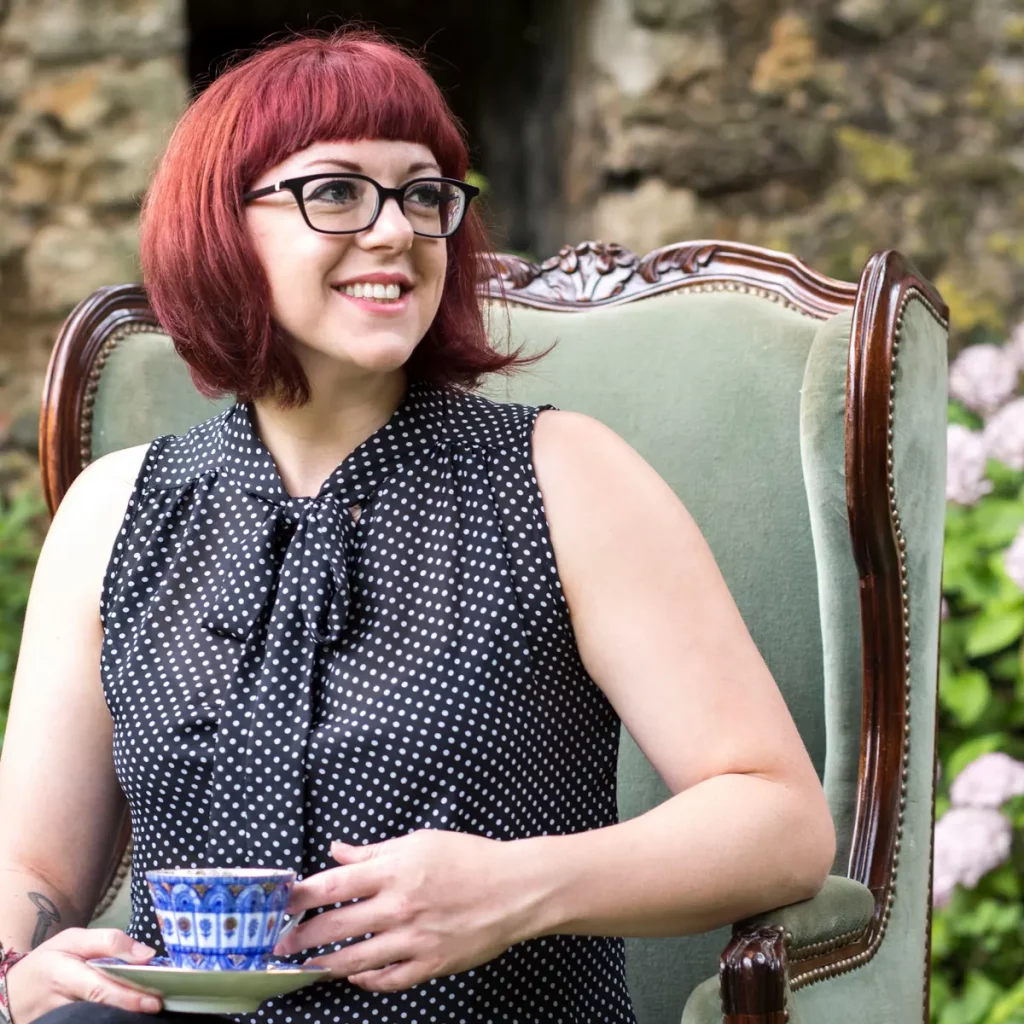
Why and where do you write?
The simple answer is I write because I can’t not write. Creative expression is up there with food, water, and oxygen as an essential.
There’s a brilliant Seamus Heaney quote on poetry: ‘I rhyme / To see myself, to set the darkness echoing.’ I suppose writing short stories and novels is the same for me: an act self-reflection and understanding myself better.
It also helps me make sense of others and the world around me. Writing can be an act of empathy and connection, or a form of escapism and freedom. Sometimes my underlying health issues makes me tired, but when I’m in the flow of writing, I enter the realm of imagination and can forget all about that.
As for where I write, I find it hard to focus in noisy cafes or on a train. My ideal setting is a desk in my bedroom surrounded by snacks, with peace and quiet for hours, and a window with a view of nature. How often I achieve that is another matter!
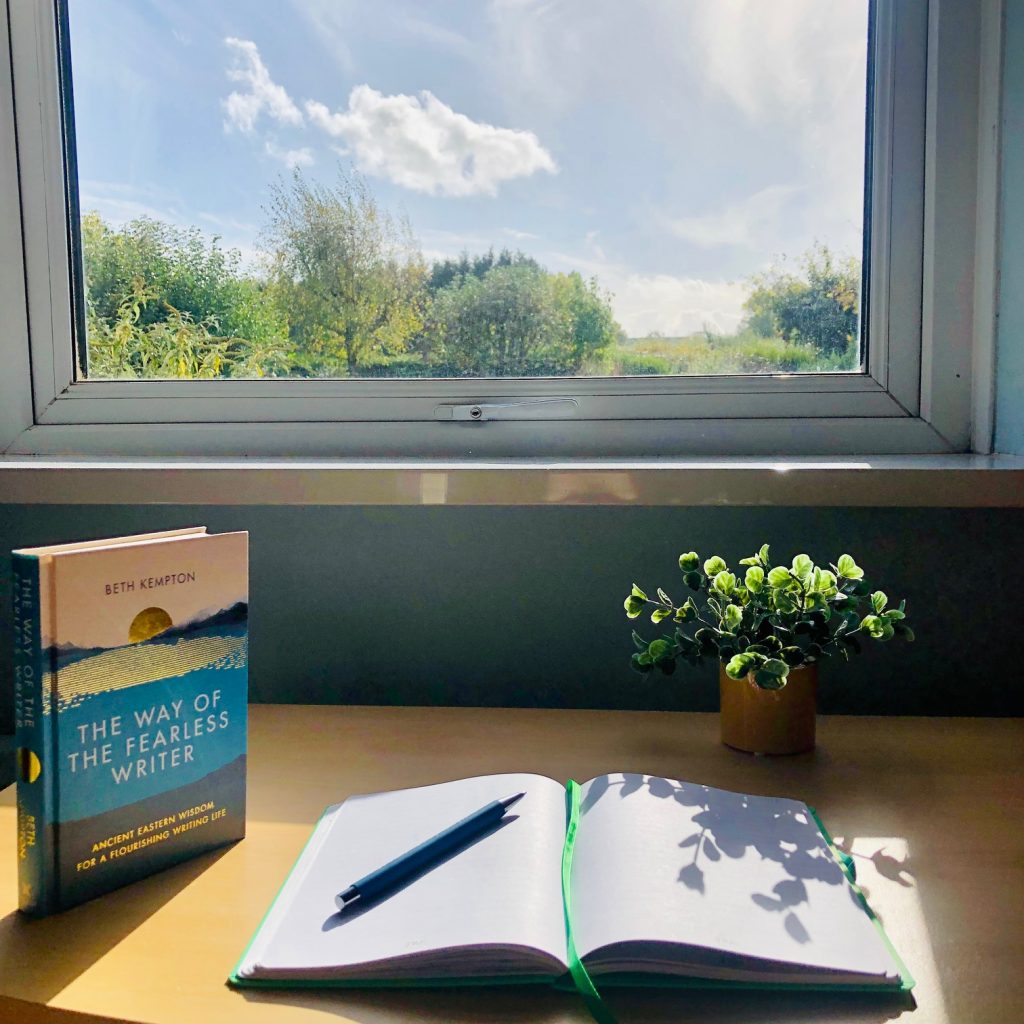
It was harder when I lived in a house share in London and worked exhausting 12 hour days in a busy book PR job. It’s easier now I’m back in Wales and working on my Arts Council Wales storytelling project.
You’re currently working with storyteller Fiona Collins, on a project called ‘Storytelling for Beginners: Retelling Welsh Myths for a Greener Future.’ The natural world is a strong theme in the tradition of Welsh Myths how does your new project re-interpret these for contemporary society?
Yes, Welsh myths are rich with nature imagery and themes. My initial approach to re-interpreting these was to work with my mentor Fiona, and explore different tales that resonated with the climate crisis and ecological issues. Then we’d pick one to make the focus our Zoom workshop.
For example, in the Third Branch of the Mabinogion, magic lays waste the kingdom of Dyfed and all agriculture, domesticated animals, and humans vanish. The only four people left behind must find ways to survive and restore the land.
But the story that most resonated with me is The Tale of Taliesin, because it features the powerful woman and sorceress Ceridwen. She uses ingredients from nature like herbs in a spell to help her son gain knowledge and become accepted by others. In the story, he’s described as deformed and crippled, so it’s also a gateway to address current issues like eco-ableism.
The narrative has an incredible chase scene when Ceridwen transforms into different animals like a hare, otter and bird of prey. It brings nature to life and creates a strong connection with the environment and local species in listeners. This was important to me, as according to a Welsh Government July 2021 report, only 15% of the population believe climate change affects them. But issues such as extinction and habitat destruction are happening right under our noses in Wales.
Our workshop begins with a short present day re-telling of Ceridwen’s tale, where she’s a scientist instead of a sorceress. She mixes medicines in her lab instead of potions in her cauldron. Then participants can plant their own stories by taking part in creative activities with a green twist, to help them grow as a storyteller.
I believe if people can imagine stories where Wales has a greener future, then it can become a reality. Myths speak to us with powerful truths, and can be tools for planting the seeds of change, and for challenging narratives. The Welsh Government’s net zero goal by 2050 won’t succeed if people don’t believe in hopeful possibilities and get behind it.
A great resource about eco-lit and rewilding stories is https://dragonfly.eco/
The workshops are offered with access support including, “live captions and bilingual Welsh/ English workshop slides. You also state If you require sign language interpretation, or other access requirements, please let us know in advance. We will do our best to accommodate.” Is access provision important to your delivery as a creative writer?
I live with chronic illnesses, and seek to support new writers and aspiring storytellers who are disabled / chronically ill/ neurodiverse/ or D(d)eaf. I understand first-hand how many barriers are out there. Now Covid lockdowns are over, it’s frustrating to see creative workshops and events becoming 100% in person only again, with no virtual offering or hybrid models.
Disabled people are underrepresented in publishing. The U.K.’s Publishers Association’s 2021 diversity survey found that 13% of respondents identified as having a disability. Few stories are told by disabled voices. I’m keen make sure my workshop is as accessible as possible to this community, so everyone feels welcome and can participate.
This also links to the ecological theme of the session. Disabled people are among the groups most affected by climate injustice. According to a World Health Organisation 2021 report, climate change is “the biggest health threat facing humanity”.
Likewise, I’m keen to make sure Welsh speakers have bilingual workshop slides and can access the activities in their preferred language. Although the workshop is in English, Fiona who co-delivers it, is a Welsh speaker who will do a reading in Welsh during the session. Afterwards, participants also receive a bilingual storytelling and climate change PDF resource pack.
How do we take part in the workshops and is there a cost?
The workshop is totally free thanks to funding from Arts Council Wales and National Lottery Good Causes. We’d love you to join us on Tuesday 1st November via Zoom from 6.30-8.30pm!
It will be a 2-hour breath of creative fresh air, and we welcome anybody who wants to have a go at telling a story and exploring Welsh myths.
Just email storytellingwales@gmail.com to secure your free place and receive a Zoom link.
There are a range of organisations supporting Welsh and Wales-based writers. I wonder if you feel the current support network and career opportunities feel ‘healthy’ to you? Do you think its possible to sustain a career as a writer in Wales and if not what would help?
I’ve recently moved back to Wales after five years away in London, so I’m still trying to find my feet with exactly what support is out there for Welsh writers!
I’d struggle to support myself as a writer right now if not for my Arts Council Wales Create grant, which I’m extremely grateful for. They have a host of funding opportunities. I also recommend writers check out the Literature Wales website resources section.
As for storytelling in Wales, Beyond the Border organisation are doing great work, and their Mycelium Hub opens up opportunities for freelancers across the country.
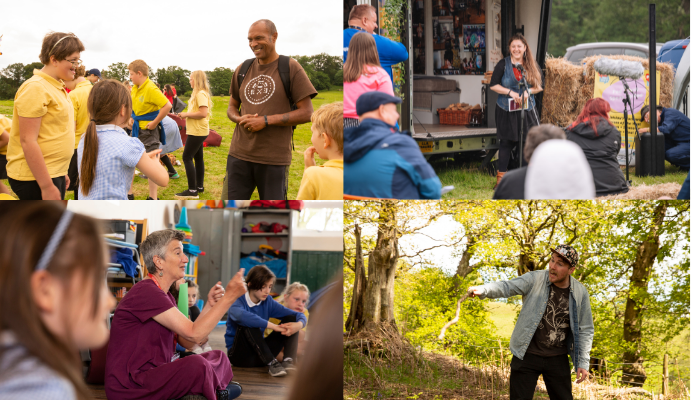
That said, with risings bills and living costs, it can feel like a pipedream for many writers to sustain a career. The Society of Authors’ calculated that the average full-time professional author only has an income of around £10,500 a year. Most have to do a part-time job, or things like teaching or freelance editing/copywriting, to make ends meet.
I believe a key step to transform the lives of writers in Wales is introducing a Universal Basic Income for artists, like the trial scheme that just launched in Ireland. A total of 2,000 musicians, painters and writers in Ireland are set to receive a weekly basic income of €325 ($330) per week under a new 3-year pilot by Ireland’s government. Imagine how much more incredible work writers in Wales could produce if they weren’t exhausted from juggling two or three jobs to make ends meet?
If you were able to fund an area of the arts in Wales what would this be and why?
Obviously I’m biased and would love to see storytellers, creative writers, and the literary world fully funded and thriving! But I see the arts as a bit like an ecosystem, or a garden. When the plants, trees, flowers, soil and so on are all nurtured, it blooms. If you only focus on one flower bed, the garden won’t flourish. That’s partly why I feel the above creative industries’ pilot scheme in Ireland is so exciting – imagine how much collaboration and support between disciplines will grow there now? Not to mention how much the health and wealth of the nation as a whole will bloom when you invest in the arts.
What excites you about the arts in Wales?
I’m particularly fascinated by the work going on in the Welsh cultural sector to tackle the climate crisis. For example, Arts Council Wales have funded a series of fellowships for artists, and are commissioning a ‘Strategy for Climate Justice and the Arts’ with Natural Resources Wales. I’m part of the Wales Climate & Culture Working Group, which has opened my eyes to the many incredible freelancers and organisations pushing tirelessly to make an impact in this area. It fills me with optimism for the future.
I also find the increase in social prescribing and utilising arts projects for well-being in the community a marvel. I was speaking to a Welsh storyteller the other day, who told me about her care home workshops and events with people living with Alzheimers. A promising development in the arts, and it opens up even more opportunities for freelancers.
What was the last really great thing that you experienced that you would like to share with our readers?
Yesterday, I attended the book launch for The Rhys Davies Short Story Award anthology published by Parthian Books. It was a buzzy night of Q&As and readings. I’m always intrigued to hear what inspires and moves writers. I was thrilled to get my hands on a copy. It was wonderful to be shortlisted for this, and Laura Morris is a worthy winner – her story Cree, inspired by her job as a school teacher, is astounding. Grab a copy if you can.

Thanks for your time Bethan
The free online workshop ‘Storytelling for Beginners: Retelling Welsh Myths for a Greener Future’ takes place on Tuesday 1st November at 6.30-8.30pm UK time. Email storytellingwales@gmail.com to secure your free place and receive a Zoom link.

